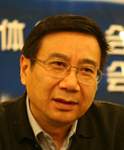Li Datong. A New Dawn for Chinese Journalism?
July 25, 2006
 A remarkable incident has emboldened Chinese journalists. Earlier this year, the government suspended publication of the newspaper Bing Dian Weekly, provoking unprecedented open protest, which received extensive media coverage worldwide. Even more surprisingly, the government, under the pressure of public opinion, has allowed Bing Dian to resume publication. The editor-in-chief and deputy editor-in-chief were sacked, but the open questioning of the legitimacy of the government's authority to regulate journalism is bound to have a profound impact.
A remarkable incident has emboldened Chinese journalists. Earlier this year, the government suspended publication of the newspaper Bing Dian Weekly, provoking unprecedented open protest, which received extensive media coverage worldwide. Even more surprisingly, the government, under the pressure of public opinion, has allowed Bing Dian to resume publication. The editor-in-chief and deputy editor-in-chief were sacked, but the open questioning of the legitimacy of the government's authority to regulate journalism is bound to have a profound impact.
Foreign observers are prone to associate the Bing Dian incident with other recent crackdowns on China's mass media, and to conclude that Chinese journalism freedom is hopeless under the present autocratic regulation. Undeniably, there has been no significant change in the government's system of journalism's regulation since China adopted its "open door" policy almost 30 years ago. On the contrary, it has become more rigorous and covert.
But I still have faith that subtle changes are occurring. A prerequisite of effective control of the media is that the controlled accept the controller's ideology. After 1949, the Communist Party cultivated a stable of "theoretical experts" and other ideological servants to write lengthy articles propagating "Marxism and Mao Zedong Thought." But nowadays, such writers are hard to find, and their work is received by readers with mockery and sarcasm.
In fact, the Central Propaganda Department's ideological control can be maintained only through internal notices and telephone calls, which are widely scorned. More importantly, even the regulators themselves have ceased to believe in obsolete and rigid doctrines. I recently met an official working for a provincial Department of Propaganda and was impressed by his bold and straightforward comments on current affairs. In private conversation, one might even take him for a liberal - one of a new breed of young and well-educated propaganda officials with an increasingly higher threshold of political sensitivity.
For their part, producers of news have long since ceased to believe that news is propaganda. I started my career with China Youth Daily in 1979 and have experienced the whole process of China's opening up and reformation. Our generation of Chinese journalists broke from traditional Communist ideas about journalism by the mid-1980's through extensive reading of Western journalism. Younger journalists have thus been exposed to Western journalistic ideas from the very beginning.
Indeed, Western works are taught as "models for writing" to journalism students in China's universities. This is a crucial change, and it is the fundamental reason for an increasing number of genuine news items and commentaries in China's media today.
Market pressure has also been important in pushing Chinese media to embrace change. Contrary to foreign perceptions, only a handful of Chinese media - for example, People's Daily, Guang Ming Daily, and the Economic Daily - still live on government funds. China Central Television relies mainly on its advertising income, with only a symbolic fraction of its massive budget covered by the government. Whether most media outlet can survive is thus solely dependent on their market success.
To be sure, political information remains rigorously controlled, which puts a premium on "harmless" recreational, entertainment, and sports information - the reporting of which is basically free. This has resulted, in the short run, in an embrace of low journalistic standards. But many metropolitan newspapers that once thrived on infotainment have seen their circulation fall in recent years. Sooner or later, readers will start to buy newspapers that can truly inform them and give voice to their opinions.
In fact, it is these tabloids, responding to market pressure, that have started to take on responsibility as public watchdogs. On many occasions in recent years, they have been the first to break sensitive news. As a result, mainstream media are being marginalized, and the previously marginalized media are becoming mainstream.
Thus, even without any change in the current system of regulation, extensive coverage of disasters, judicial abuses, and citizens' pursuit of their statutory rights, along with the questioning of policies from public perspectives, is now common. For example, reporting by the South Metropolitan Daily led to the abolition of an outdated housing ordinance issued by the State Council. Cai Jing magazine's continuous reporting on SARS enabled the Chinese public to learn the truth about this epidemic. The Bing Dian Weekly of China Youth Daily published an article by Taiwanese writer Long Yingtai on Taiwan's democratic development.
Such progress is slow and full of frustrations, for it reflects the incremental evolution of the system. But it is nonetheless real progress, indicating the growing influence of the Chinese media and pointing to China's becoming a country of "free expression".
According to an old Chinese saying, "a just cause enjoys abundant support, while an unjust cause finds scant support." A "just cause" resides in people's hearts. Without the hearts of news producers - or, increasingly, of censors - the seemingly formidable edifice of journalistic regulation will, sooner or later, collapse like the Berlin Wall.
Li Datong is a senior editor with China Youth Daily and former editor-in-chief of the Bing Dian Weekly, the post from which he was removed during the Bing Dian Incident.




